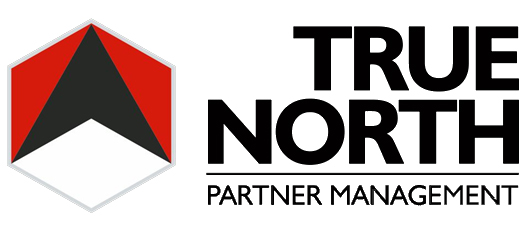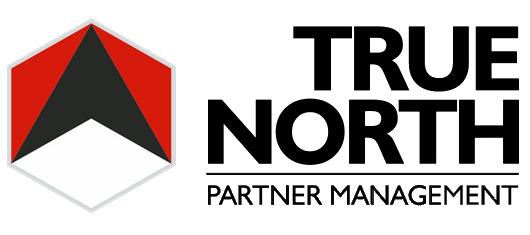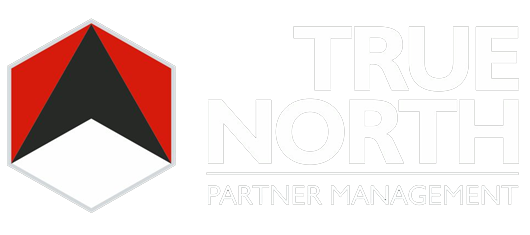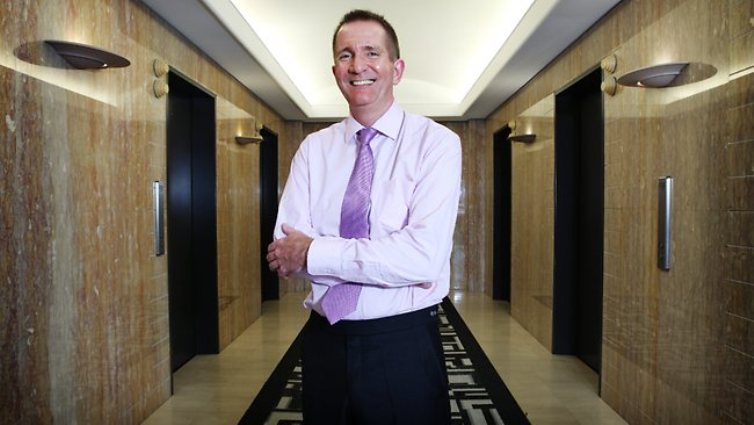The following post originally appeared on Forbes | June 11, 2014
Carl von Clausewitz was a Prussian general and military theorist who, while having served in several campaigns and wars—the Rhine Campaigns (1793-1794), the Napoleonic Wars from 1806-1815, the Jena Campaign of 1806, among others— also studied the writings of Immanuel Kant at Kriegsakademie (German War School) in 1801. Though he did not reach the fame that he had hoped for in his lifetime, his writings—most notable of them being On War—are still very much alive in modern military camps.
Perhaps most instructive is his observance of war’s dual nature. Though he describes it in various ways—regarding objective and subjective principles, and regarding similarities based on the level and type of military units (subjective) and the purpose of the particular engagement (objective)—the most durable of his theories is the definition of the universal elements of, and the specific means by which to engage, war.
War’s objective nature consists of things like purpose, hostility, and chance, with chance including factors such as danger, physical exertion, and uncertainty. He considered all wars to have these elements present in varying degrees. The subjective nature of war consists of things like military forces, doctrines, methods, and weapons. Whether or not, and to what degree, these are present, can vary from war to war: a conflict at sea will deploy different weapons and strategies than one on land, for instance.
Importantly, the two natures, and the various components that comprise them, dynamically interact and influence each side to create novel and often unpredictable conflicts. Aptly, Clausewitz likens war to being “more than a true chameleon that slightly adapts its characteristics to a given case,” suggesting that while conflict may change the way it looks (subjective), its nature may shift in varying degrees as well (objective), requiring a true master of strategy to adapt and thrive.
When viewed through a particular lens, Clausewitz’s dual nature maps, smoothly, onto the legal industry: Competition, friction from the principal-agent relationship, time pressures, and more, are objective. Benefits derived from reputational capital, geographic footprints, governance configurations, and more, are subjective.
Where this yin and yang, of sorts, meets at the global level, David Morley, senior partner of Allen & Overy, would certainly earn a second look from even the most discerning students of Clausewitzian theory. Morley and his firm are at the forefront of the incredibly competitive global legal market, and, after a conversation with him, I can see that it isn’t by chance. Exuding what can only be described as a comprehensive understanding of the objective and subjective natures of law firms and legal consumers, Morley has guided A&O to their well earned global recognition. See our exchange below:
On Defining a Global Firm
Parnell: The term “global,” the term “international,” they are thrown around, a lot. Actually, one of the only books I’ve read that truly attempts to define global versus international firms is Dirk Harlacher’s The Governance of Professional Service Firms. How would you define global versus international firms?
Morley: First of all, the partnership and leadership of [Allen & Overy] had a vision 20 years ago that the world would become more global, and that our clients would become more global; it is a pretty simple, well-worn strategy for law firms to follow their clients. So, when you look back over the last 20 years as we expanded—and, particularly, the last 6 or 7 years—that trend of globalization has proven to be right.
Parnell: Sure. That was good insight!
Morley: With hindsight, yes. [laughs] We didn’t know that at the time; it wasn’t uncontroversial, of course, because these things are always debated; it is only obvious with hindsight. Even after the great crash—the global crisis between 2007 and 2009—there were lots of people who thought that globalization was going to go into reverse as a result of the economic meltdown.
We doubled down on the globalization bet, and continued to open offices so that we now have 43 offices in 30 different countries.
Parnell: Jeez … that is a massive footprint.
Morley: Yes, and it is probably the biggest of any of the top-tier law firms. … We have a fundamental philosophy, which is “global reach, local depth.” It is not just a catch phrase; it is a way of summarizing our philosophical view, if you like, of what we are trying to achieve as a firm. Because we think that what many of our clients want—not every type, but many of our clients—is the ability to go to one firm that can deliver for them across many different markets.
So, for example, if you look at our top 50 clients, on average, we advise them in 19 different countries. Not all clients want this, but it’s telling that 69% of our revenue is cross-border, by which we mean that it derives from matters which involve 2 or more countries. 26% of our revenue involves matters which involve 5 countries or more, and that is increasing in proportion. More of our work, every year, involves more jurisdictions, partly because of our model—which offers services in so many different markets—but also partly from the demand for complex cross-border work, because many of our clients are set up that way.
Parnell: Is there a particular type of client that the 26% comprises? I am assuming that these are financial services—banks, for instance.
Morley: We focus on seven key sectors, which we look at globally: financial institutions, energy, infrastructure, life sciences, mining, private equity, and TMT—telecommunications, media, and technology. So, if you look at any of those sectors, they all have characteristics which, I think everyone would agree, are global.
One definition of a global industry is where you have more of the same firms or companies competing, more-or-less, everywhere. … The law is moving toward that, so, we find that, increasingly, we are competing with firms who can operate across those different markets. …
If you need to draw a distinction between global and international, I’d say that it doesn’t really matter. Both strategies can be perfectly successful, as long as you are clear about which one you are pursuing, and the distinction would probably be based around scale—the size of our operation, reach—the number of markets you are operating in on the ground, and scope—the services you are offering and delivering to clients.
So, more-international-than-global firms typically would be smaller, have fewer offices—I’m not sure there is a given number that defines it—and typically would be offering a more narrow range of services in the offices that practice in those jurisdictions. But, frankly, I don’t lose sleep over that one, because it doesn’t matter. I find that as long as you deliver what clients want, no one is going to instruct you because you define yourself as global or international.
On Client Interests
Parnell: What are you seeing in the form of client interest in today’s market?
Morley: … I was in NY a couple of weeks ago, and I spent quite a bit of time talking to the general counsel of some very significant financial institutions—both US-originated and international in origin—but they were all US general counsel.
What struck me most was a really distinctive change in thinking, where one—I can’t say who it was, but it was a very well-known general counsel of a very large financial institution—said that they used to think that the best thing to do if you had a multi-jurisdictional investigation, for example, was to hire the best firm in each jurisdiction.
But they have now concluded that some law firms have evolved—we’d like to think that we are one of those—to the point that they can offer the quality that [the client is] looking for in each of those relevant jurisdictions. And, where that is the case, they would much prefer to go to a single firm.
I think I saw 5 or 6 GC’s based in NY, and that notion met with universal support. That represents, I think, a very significant change in mindset. And that is partly because firms like ours can now offer that. And, partly, because the American firms have become more international and can offer that as well.
On Fee Pressure
Parnell: I am sure that there are fee pressures on almost everything that you engage, but are you seeing the same types of pressures for global matters?
Morley: Every law firm is experiencing pressure on their fee rates to some degree or another, because I think there is just a huge structural change that is going on in the market, and I don’t think that it is going to go away. … Our view of that is not if it is happening, but to accept that it is happening; accept that it is not going to go away, and accept that we have to find a response to that. So we are very focused on looking at delivering different ways that we can provide legal services to clients, because that is what clients want.
If you went back 10 or 15 years ago, essentially clients got their legal work done either in-house or they went to an external law firm. If you went back 25 years ago, big clients would send all of their work to one firm. Those things have changed now so that most big clients would be well-used-to using a whole range of providers of legal services, from e-discovery solutions to LPOs to contract lawyers, and a whole range of services. That is essentially ground that law firms have been ceding. So, we think that those are fundamental challenges to the law firm business model, and we think that clients want something different from law firms.
Parnell: Are you, as a firm, looking to bring these alternative services in-house and to manage them in a project management capacity? What are you doing as a firm to take control of this and to offer these services to the client?
Morley: We start from the premise that we have to deliver what it is that the clients want. And the clients tell us—loud and clear—that they want different models of legal service delivery; they want more flexibility.
A typical example is the whole idea of—it’s a horrible word, but it sums it up—disaggregation. This is the client saying, in the past, “I’ve got an M&A deal, and I go to firm ‘A,’ and say ‘you do everything on this deal.’” And the firm makes money by, essentially, charging more or less the same rate for the work which is very complex, high end, and strategic, and the [other] work, which is, perhaps, more straight forward.
Many clients have woken up to that, and [now what] they’re saying is “actually, we’d like to divide that deal up, and we want the likes of A&O at the top end to do the more strategic boardroom advice, and the more straightforward work, we want done in some other way—in India, or outsourced to a lower-cost jurisdiction.”
Our response to that was, for example, [to] set up an operation in Belfast, Northern Ireland, about three years ago. We now employ almost 350 people in Belfast; it is a big operation. … We asked ourselves the question, if we were born today as a global firm, or we were designing the firm from scratch to be the firm that we are today, would we now have all of our office staff in the center of London, in some of the most expensive real estate in the world? And the answer is obviously no! [laughs].
And, so, that being the case, what do we do? We scoured the world, and in the end, concluded that Belfast was the right place for us. We moved our back office operations about three years ago…. One of the reasons that Belfast came top for the criteria that we set … is we have a good supply, we thought, of legal talent. And that proved to be the case, because we had in mind [that] we would build up a low-cost legal services arm, there, that would help us service work for existing clients. So, we are able to offer clients—and this is an important distinction, here—a low-cost element to a larger matter or transaction that we are working on.
On Recruitment: Consistency Across the Footprint
Parnell: Regarding A&O’s quality across borders, across industries: How are you accomplishing that? Standardization of processes? Formalization? Ex-ante versus ad hoc decision making? And this goes back to your governance model. I don’t know how much you want to relay, but, any information you can give, I think, is going to be incredibly interesting.
Morley: … One of the questions that is very commonly asked is that with this huge empire around the world, how do you ensure consistency?
I can remember—because I’ve been around long enough to remember this, reading the clock back 20 years—there used to be debate in the partnership: how could we hire a Polish lawyer [for instance]? We are not Polish lawyers, so how could we ever know if [they are] any good. How would we maintain the quality?
… Whether it is a Polish lawyer, or Indonesian lawyer, a Japanese lawyer, a Thai lawyer, an American lawyer, a French lawyer, a German lawyer, you name it, we have gotten very good at working out whether they are of the right quality or not. Recruitment is at the heart of this; recruitment processes or methodologies that we use. And also, I think, having reached a certain size and scope. It is also about market intelligence.
So I’ll give you an example: We opened in Casablanca a couple of years ago. That didn’t come from [someone just] saying that’s a great place to go, strategically, so let’s go there. We’ve been doing business there for 10 years or more, from our offices in the middle east—Abu Dhabi and Dubai—and also from our offices in Paris; a lot of French companies do business there. So we know that market inside out. We know who the players are; we’ve dealt with them; we’ve seen them on deals; we’ve seen how they respond to clients; we know who the good guys are. … So, when the opportunity comes along to hire one of the good guys—in this case, two Moroccan-qualified partners—we took it, because we knew they were, basically, the only two players in town.
There is a certain benefit from having already reached that local scale because of the market intelligence that we have. It is not just the number of offices that we operate; we also try to be very strategic about the relationships we have with law firms in countries where we don’t have a presence. … So, in those countries, we rely on good relationships with local counsel. With a few exceptions, we try to focus our referrals and our relationships on no more than two law firms in every country.
We have our global relationship conference every autumn, and we bring along partners from over 100 different law firms around the world, and we introduce them to clients, and we talk about how we do business together. … Our biggest problem now is that this event is over-subscribed. [laughs]
On Culture
Parnell: Hiring across such a diverse office base, how are you protecting the strength and homogeneity of your cultural values?
Morley: We don’t just hire people off the street. Generally speaking—especially at partner-level—they are people that we’ve known in the market for a long time. … Then we mix that with so-called “culture carriers.” So, for example, in Casablanca, when we hired the two Moroccan lawyers, we also moved one of our existing partners to Casablanca to help them establish that practice.
Parnell: Along with the culture-carriers, how else are you enforcing the culture? It is such a massive entity; the formalization of culture is going to be incredibly important, especially in a law firm, where you don’t have the same strength of governance as you would in the corporate world.
Morley: We do have a very strong culture. I know all law firms say that, but I think this is genuinely true. And I think that if you run around, randomly, and ask our partners, that you would get a pretty consistent answer on that.
We like to talk about a high-performance culture. The idea that “A” players like to play with “A” players, and, so, you don’t achieve that by accident. You need to build it into your practices and your approach.
So our approach to lateral hiring, for example, is very deliberate. We’ve made a lot of lateral hires over the years, but we are very rigorous, and we reject anyone that doesn’t meet our standards. It is not just about hiring people who are good at what they do; we want people who can fit into our culture. Frankly, if they don’t, they are not doing themselves any favors and they are not doing us any favors.
And the essence of that culture … is an open, collaborative culture. You could probably find out more information, publicly, about us, David, than any other law firm in the world, if you put your mind to it. Just read our annual report—it is absolutely full of figures and data and stuff you will not find any other law firm doing. That is because transparency is a key value for us. And we share it all, freely, between ourselves, so, why not share it with the world?
On The Not-So-Obvious Challenges of Managing a Global Firm
Parnell: What are some of the not-so-obvious challenges of leading a global firm?
Morley: … One, I think, is second-guessing the future. We try very hard to look into the future—as best as one can—and think about the ways in which the world might change, and the ways that our client’s needs might be changing. And so, in the last few years, we’ve run two particular projects:
One is called the “Long View,” where we sent groups of partners out from all over the world to talk to clients about how they saw the world changing by 2020, and we’ve developed a set of scenarios from that…. We played that back to our partnership, and use it as part of the background for our strategic thinking.
And then we did another exercise this year, which we called “learning from clients,” where, again, we put groups of partners together from all over the world, formed them into panels, and sent them off to talk to clients to find and discover ideas that our clients were using that, perhaps, could translate into the legal industry.
One of the challenges is finding ideas from outside of the legal industry, which, I think we are guilty of as a profession of being a bit myopic with our business models and our structures. And, so, we came back with some really good ideas, which, again, we played back to our partnership and we had a vote on at the partner’s conference.
Another one, I would say, is just the sheer variety of things that you deal with when you are a global firm. For example, last week, we [considered] the question of what impact the military coup in Thailand would have on our business in Bangkok. And a few months earlier was what impact would the Russian invasion of Crimea, and what is going on in the Ukraine, have on our business, not only in Russia, but also in the Ukraine and the surrounding states. So, we get lots of interesting challenges like that, from floods to riots to revolutions to coups, and everything in-between.



